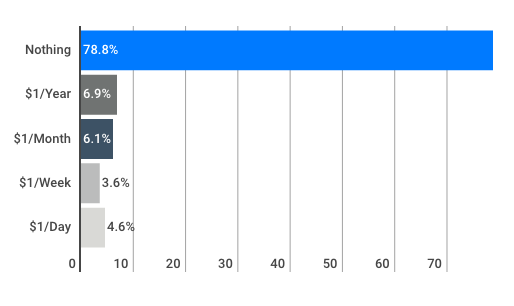
With the adoption of mobile devices growing two times faster than the global population, two-thirds of the world population will own a mobile device in only four years. In 2020, more people will have mobile phones (5.5 billion) than electricity (5.3 billion), running water (3.5 billion), and cars (2.8 billion). How has this affected advertisers’ ability to market to users in this on-the-go mobile world?
[bctt tweet=”By 2020, 70% of the world’s population will use mobile devices. ” username=”tune” url=”http://bit.ly/2bLWEjG”]Consumers are savvy
Consumers now have the ability to block advertisers from tracking their online habits and even serving them ads.
TUNE’s mobile economist, John Koetsier, surveyed almost 1,000 smartphone owners in the U.K. He found that ad blocking installs are growing rapidly, with downloads spiking three-fold in the last three months of 2015.
What we found out: consumers are happy to spend money on mobile games and other apps they enjoy, but they overwhelmingly don’t want to hand over their money to access paid content, which is one way to secure an ad-free experience. And consumers who are willing to pay to avoid mobile ads are only willing to shell out a a few bucks a year.
 Only 21 percent of consumers would pay to block ads
Only 21 percent of consumers would pay to block ads
Worldwide mobile ad blocking installs grew three times in the last quarter of 2015. TUNE research suggests a little chunk of every age group is blocking ads. Teens are least likely to block ads, while women tend to block ads less than men. On average 28.6 percent of men report having installed more ad blocking apps, compared to 22 percent of women. In the U.K., 27 percent of people admitted they’ve installed ad blockers on their smart phones.
The most likely person to install an ad blocker for their mobile device: a young or middle aged male using an Android phone in the U.K.
Industry commentary on ad blocking
Ad blocking is often a result of badly placed or untargeted ads. Others call it laziness, bad sources of traffic, or shoestring budget advertising. The more unengaging, badly-sized, or cheap-looking ads people see, the more tired they become of them.
UK Three’s CMO, who is behind ad blocking technology, didn’t mince words with his recent comments about ads.
“Irrelevant and excessive mobile ads annoy customers,” he said in a media release.
Ad networks, agencies, and traffic partners should be seeing this as an opportunity for improvement. Invest more time forming direct relationships with advertisers and brokering deals from other networks, and traffic partners can better understand their client’s target audience. This will result in ad networks creating more targeted ads consumers will want to engage with. With more relevant ads that consumers find less offensive, they will be less likely to install or use ad blockers.
At the end of the day, consumers don’t want to pay for content.
Allie Kline, Chief Marketing Officer of AOL, expressed to TechCrunch that it’s still early for the ad tech industry to grapple with the mobile’s rapid growth.
“While I think it’s absolutely an issue we need to address and spend time on, I also think we need to give it the time to do that,” Kline said. “We need to be really careful about the thoughtfulness and investment we make to right-size how we fund content.”
I’m not sure I agree with Kline here. I think this creates an opportunity for traffic partners (networks, agencies, and publishers), to come up with ways to market content to mobile users in a way that they don’t hate. It’s something advertisers will never have time to address and so traffic partners need to step up and create these solutions.
The price of ads
Are you as a content reader aware that ads fund free content? Less than half of British adults are aware that ads fund free content. Only 44 percent of British adults online are aware that most websites are free thanks to advertising revenue, according to an IAB report. Men (52 percent) are more likely to be aware of this than women (36 percent), and 18-24 year olds (59 percent) more so than people over 55 (36 percent). TUNE’s research study found that nearly 80 percent of UK consumers wouldn’t want to pay for content.
Benjamin Faes, MD, media and platforms at Google, argued at MWC that ad blockers risk the free content ecosystem and blocking all ads is “diminishing” the overall experience. He also pointed out that four of the top 10 videos on YouTube in 2005 were ads.
Final thoughts
I don’t think there is anything to worry about for European publishers and advertisers about ad blockers, but I do think there need to be advances in ad types and better targeted ads. Traffic partners can put an end to the intrusive unengaging ads. They can do this by creating new ad types, use more sophisticated technologies to track and collect as much data as they can from ad performance to then better target their users, using this big data collected in more real-time, using programmatic solutions with more relevant and delightful creatives.
Sign up for our blog digest emails.
Author
Becky is the Senior Content Marketing Manager at TUNE. Before TUNE, she led a variety of marketing and communications projects at San Francisco startups. Becky received her bachelor's degree in English from Wake Forest University. After living nearly a decade in San Francisco and Seattle, she has returned to her home of Charleston, SC, where you can find her enjoying the sun and salt water with her family.




Hello